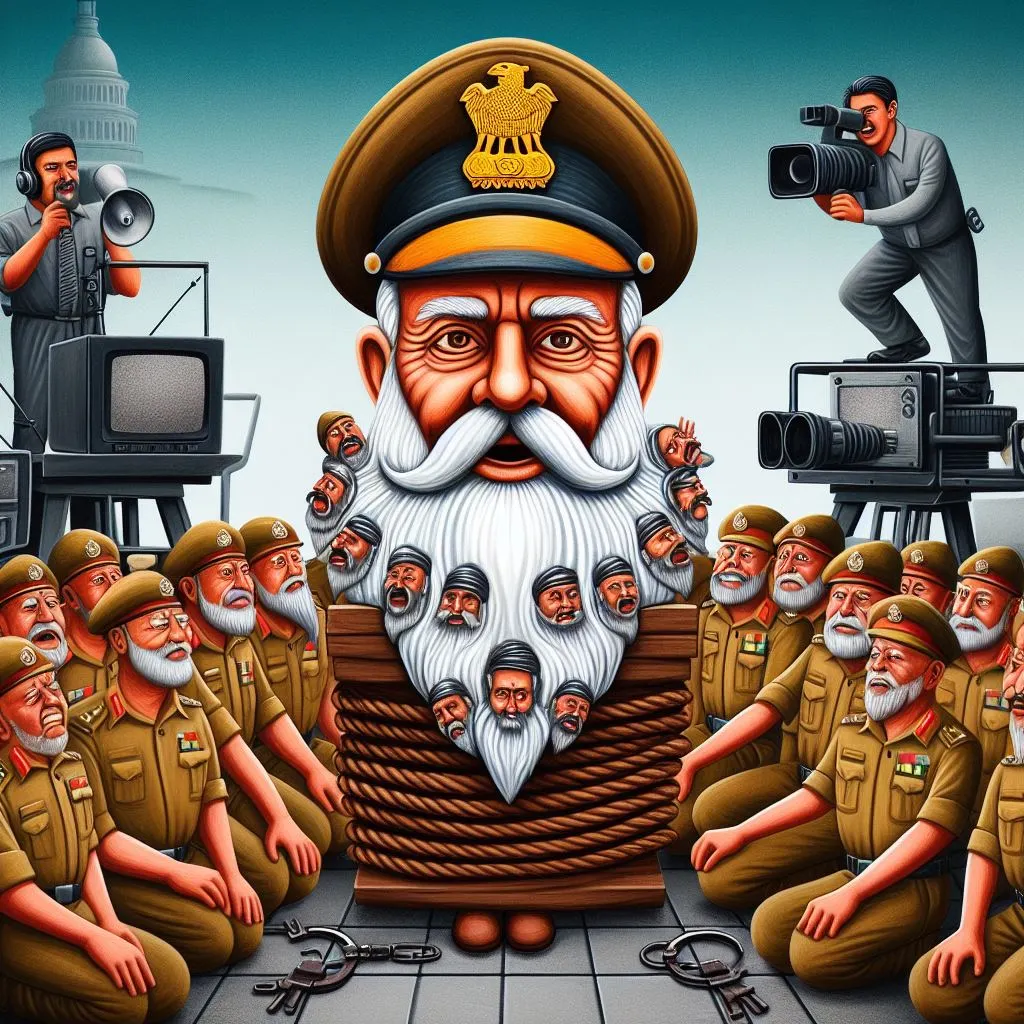Summary
Democracy is often misunderstood as a system where regular elections take place, but that is not the true essence of democracy. The recent incidents and actions of the government in our country suggest that we might be moving towards a democratic dictatorship. This blog explores the various aspects that raise concerns about the state of democracy in our country, including the manipulation of elections, interference in opposition governments, weaponization of investigative agencies, biased media, and the suppression of citizens’ right to protest. These issues highlight the need to question the current state of democracy and the erosion of democratic principles. It is crucial to be aware of these issues and hold the government accountable to ensure the preservation of a true democracy.
The Misunderstanding of Democracy
Democracy is often mistakenly equated with regular elections. However, the presence of elections alone does not guarantee a democratic country. The examples of North Korea and Russia demonstrate that elections can be held in authoritarian regimes where only the ruling party or candidates approved by the government are allowed to participate. In such cases, the freedom to choose and the fairness of the electoral process are compromised. True democracy requires both freedom and fairness in elections, where individuals have the liberty to vote for their preferred candidate and different political parties have an equal chance of winning.
Election Fraud and Manipulation
Instances of election fraud and manipulation raise concerns about the integrity and fairness of our electoral process. The video highlights the case of the Chandigarh Municipal Corporation Mayor elections, where CCTV footage captured the presiding officer declaring invalid votes in favor of the ruling party. This blatant election fraud undermines the democratic principles of free and fair elections. Similar incidents of electoral misconduct, such as the discovery of an EVM machine in a BJP candidate’s car and attempted theft of electronic voting machine control unit, further question the credibility of our elections.
Biased and Controlled Institutions
The independence and integrity of institutions are crucial for a functioning democracy. However, the video exposes the accusations made against the Election Commission, suggesting its bias towards the ruling party. The clean chits given to Prime Minister Modi and other BJP leaders in multiple cases despite clear violations of election rules raise concerns about the impartiality of the Election Commission. Furthermore, the interference of governors in the functioning of opposition-led state governments undermines the autonomy of elected representatives and erodes the democratic fabric of our country.
Weaponization of Investigative Agencies
The video highlights the weaponization of investigative agencies, such as the CBI and ED, to target opposition politicians. The disproportionate number of cases registered against opposition parties and the selective clean chits given to BJP leaders suggest an abuse of power for political gains. Opposition leaders who refuse to join the ruling party are subjected to harassment and imprisonment before being convicted, undermining the principles of justice and fairness in a democracy.
Manipulation of Media
The media plays a crucial role in holding the government accountable and informing the public. However, the video reveals the biased and one-sided coverage of the ruling party by most media channels. Instead of questioning the government, many news anchors have become spokespersons for the ruling party, stifling dissenting voices and preventing a fair representation of different political viewpoints. The control of media narratives by the ruling party limits the citizens’ access to unbiased information, hindering their ability to make informed decisions in a democracy.
Threats to the Right to Protest
Protest is an essential aspect of democracy, allowing citizens to voice their concerns and hold the government accountable. However, recent incidents of suppressing protests, such as the treatment of farmers protesting against new agricultural laws, raise concerns about the government’s attitude towards dissent. The use of force, tear gas, and rubber bullets against peaceful protesters undermines their democratic right to express their grievances. The disregard for citizens’ right to protest threatens the very essence of democracy.
Democracy vs. Majoritarianism
It is important to distinguish between democracy and majoritarianism. Democracy is not merely the rule of the majority, but a system that upholds the principles of liberty, equality, fraternity, and justice. The video presents examples of majoritarianism at the local level, where societies impose discriminatory rules and restrictions based on the majority’s preferences. True democracy requires the protection of individual rights and the prevention of majority tyranny.
Accountability and the Role of Citizens
In a democracy, accountability is a shared responsibility of institutions, media, civil society, and citizens. The video emphasizes the need for citizens to hold the government accountable through mechanisms like RTI (Right to Information) and protests. The power of the people to bring about change is demonstrated through examples where public outrage has led to the withdrawal of undemocratic rules. However, the suppression of protests and the lack of accountability from the government raise concerns about the future of democracy in our country.
The Road Ahead
The erosion of democratic principles and the growing concerns about the state of democracy in our country require immediate attention. It is essential for citizens to remain vigilant, question the actions of the government, and demand transparency and accountability. Democracy should not be reduced to a mere formality, but a system that upholds the rights and freedoms of all individuals. Preserving a true democracy requires collective efforts to safeguard the principles of liberty, equality, fraternity, and justice.



